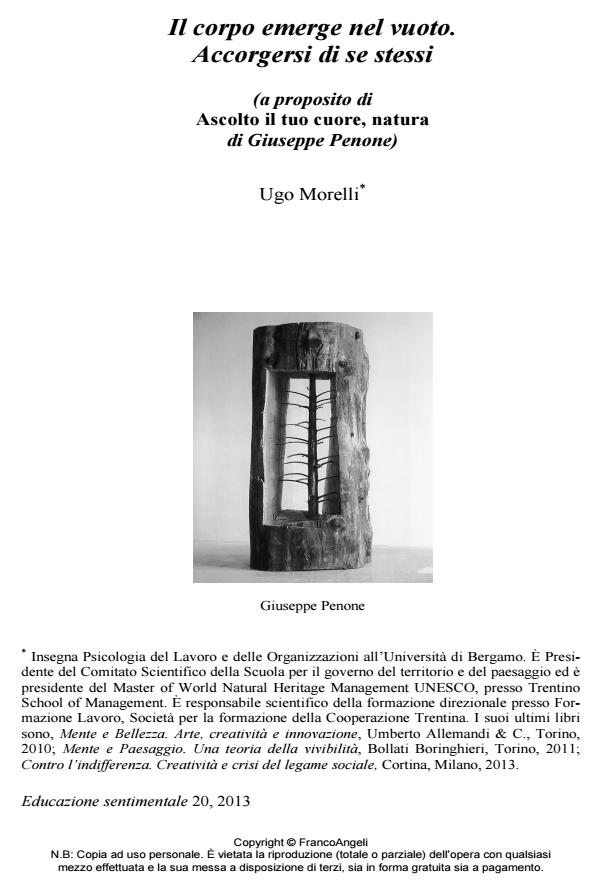Il corpo emerge nel vuoto. Accorgersi di se stessi (a proposito di Ascolto il tuo cuore, natura di Giuseppe Penone)
Journal title EDUCAZIONE SENTIMENTALE
Author/s Ugo Morelli
Publishing Year 2013 Issue 2013/20
Language Italian Pages 16 P. 85-100 File size 847 KB
DOI 10.3280/EDS2013-020008
DOI is like a bar code for intellectual property: to have more infomation
click here
Below, you can see the article first page
If you want to buy this article in PDF format, you can do it, following the instructions to buy download credits

FrancoAngeli is member of Publishers International Linking Association, Inc (PILA), a not-for-profit association which run the CrossRef service enabling links to and from online scholarly content.
The body emerges in a vacuum. To be aware of themselves. The symbolic and aesthetic way is for us access to the body that we are part of nature and at the same time different. The "body itself" for us humans does not exist. Nor is it possible for us there is coincidence between nature and the human body, although the latter part of nature. The beauty of the body can be recognized as a temporary manifestation of the living, in particular thanks to the accessibility that art allows. This awareness of the contingency of the body, rather than being experienced as a problem is, at last, a real opportunity for mindfulness, to be able to recognize. Toward Giuseppe Penone’s artistic research and production, this essay explores the affinity and distinction between embodied human mind and nature.
Keywords: Absentiality, lack, contingency, symbolic competence, verbal, emergency
Ugo Morelli, Il corpo emerge nel vuoto. Accorgersi di se stessi (a proposito di Ascolto il tuo cuore, natura di Giuseppe Penone) in "EDUCAZIONE SENTIMENTALE" 20/2013, pp 85-100, DOI: 10.3280/EDS2013-020008